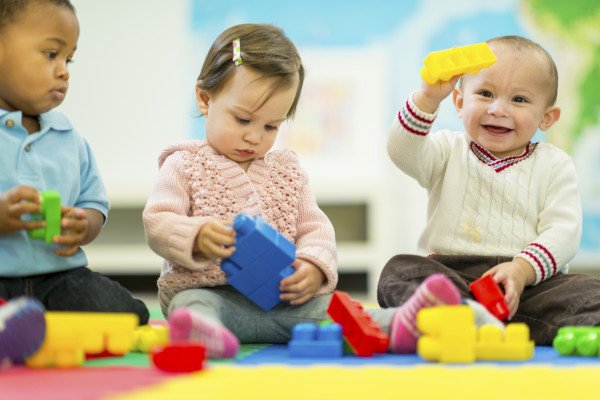Why is Play Important
When your child plays, they learn about them self and their surroundings.
Play is important as it teaches them how to coordinate their body movements, talk with friends, apply rules, and more. But the learning process is even broader than this.
What is Play?
Play is more than you think; it is a way for your child to familiarize themselves with the world while exploring and testing their own limits. At the same time, they are engaged in an activity that provides them enjoyment or  amusement. It helps them learn about things such as the earthworm they find on the ground, how to avoid arguments with others, their favorite make believe character during role play, or that mom does not like when they yell inside the house. Promoting playtime helps your child learn about their skills and abilities, while interacting with others and their surroundings.
amusement. It helps them learn about things such as the earthworm they find on the ground, how to avoid arguments with others, their favorite make believe character during role play, or that mom does not like when they yell inside the house. Promoting playtime helps your child learn about their skills and abilities, while interacting with others and their surroundings.
Watch our 1 minute guide to play:
When Does Play Start?
Play begins early. When baby studies and interacts with the things around them, whether this is by putting a toy in their mouth or touching a new textured object, they are “playing.” Part of exploring their environment also includes figuring out how to get your attention such as when baby coos or babbles at you.
It is important to remember playtime helps baby to continuously master and reinforce concepts that become important milestones.
What Do Kids Learn From It?
Your child will continue to playing throughout childhood and you may be  surprised at the number of skills they develop such as:
surprised at the number of skills they develop such as:
- Learning to exercise problem solving skills
- Showing an ability to think flexibly
- Practicing processing their emotions
- Facing their fears
- Trying new things without fear of mistake
Older children also gain something additional while they play—they discover their own interests and passions. Your child may find they have a love for a specific activity such as art or acting, or possibly for an animal or character. Playtime will encourage them to continue exploring their own interests and build skills they will use in the future.
All children should have time for play.
It is the building blocks for establishing confidence, coping abilities, flexibility and positive interactions with others. Through play, your child will be able to apply these skills as they grow into a young adult.